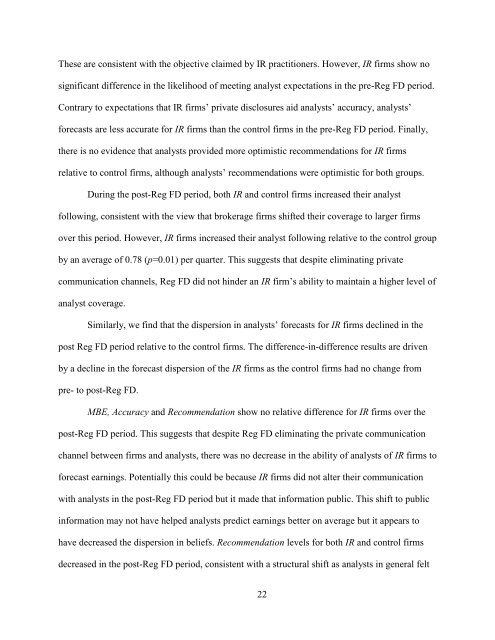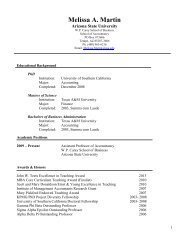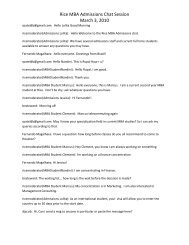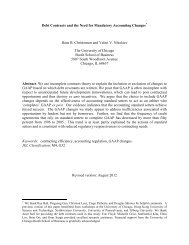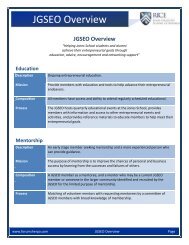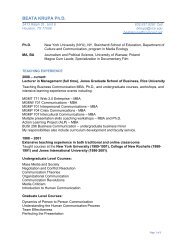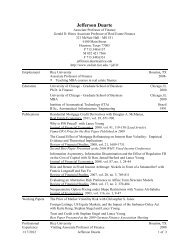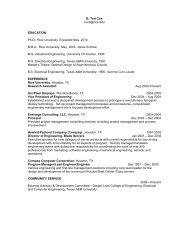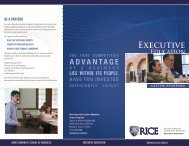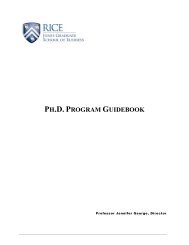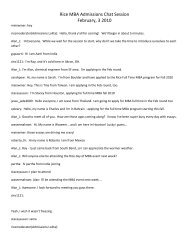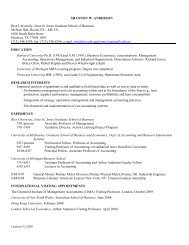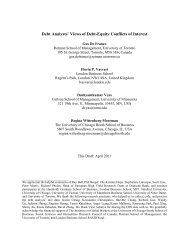Investor Relations and Regulation FD
Investor Relations and Regulation FD
Investor Relations and Regulation FD
Create successful ePaper yourself
Turn your PDF publications into a flip-book with our unique Google optimized e-Paper software.
These are consistent with the objective claimed by IR practitioners. However, IR firms show no<br />
significant difference in the likelihood of meeting analyst expectations in the pre-Reg <strong>FD</strong> period.<br />
Contrary to expectations that IR firms’ private disclosures aid analysts’ accuracy, analysts’<br />
forecasts are less accurate for IR firms than the control firms in the pre-Reg <strong>FD</strong> period. Finally,<br />
there is no evidence that analysts provided more optimistic recommendations for IR firms<br />
relative to control firms, although analysts’ recommendations were optimistic for both groups.<br />
During the post-Reg <strong>FD</strong> period, both IR <strong>and</strong> control firms increased their analyst<br />
following, consistent with the view that brokerage firms shifted their coverage to larger firms<br />
over this period. However, IR firms increased their analyst following relative to the control group<br />
by an average of 0.78 (p=0.01) per quarter. This suggests that despite eliminating private<br />
communication channels, Reg <strong>FD</strong> did not hinder an IR firm’s ability to maintain a higher level of<br />
analyst coverage.<br />
Similarly, we find that the dispersion in analysts’ forecasts for IR firms declined in the<br />
post Reg <strong>FD</strong> period relative to the control firms. The difference-in-difference results are driven<br />
by a decline in the forecast dispersion of the IR firms as the control firms had no change from<br />
pre- to post-Reg <strong>FD</strong>.<br />
MBE, Accuracy <strong>and</strong> Recommendation show no relative difference for IR firms over the<br />
post-Reg <strong>FD</strong> period. This suggests that despite Reg <strong>FD</strong> eliminating the private communication<br />
channel between firms <strong>and</strong> analysts, there was no decrease in the ability of analysts of IR firms to<br />
forecast earnings. Potentially this could be because IR firms did not alter their communication<br />
with analysts in the post-Reg <strong>FD</strong> period but it made that information public. This shift to public<br />
information may not have helped analysts predict earnings better on average but it appears to<br />
have decreased the dispersion in beliefs. Recommendation levels for both IR <strong>and</strong> control firms<br />
decreased in the post-Reg <strong>FD</strong> period, consistent with a structural shift as analysts in general felt<br />
22


